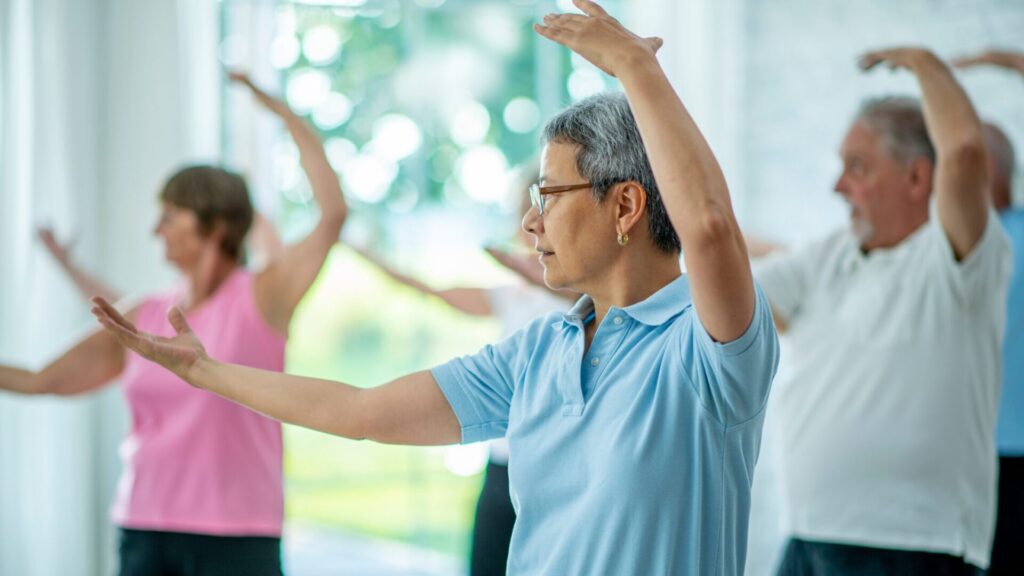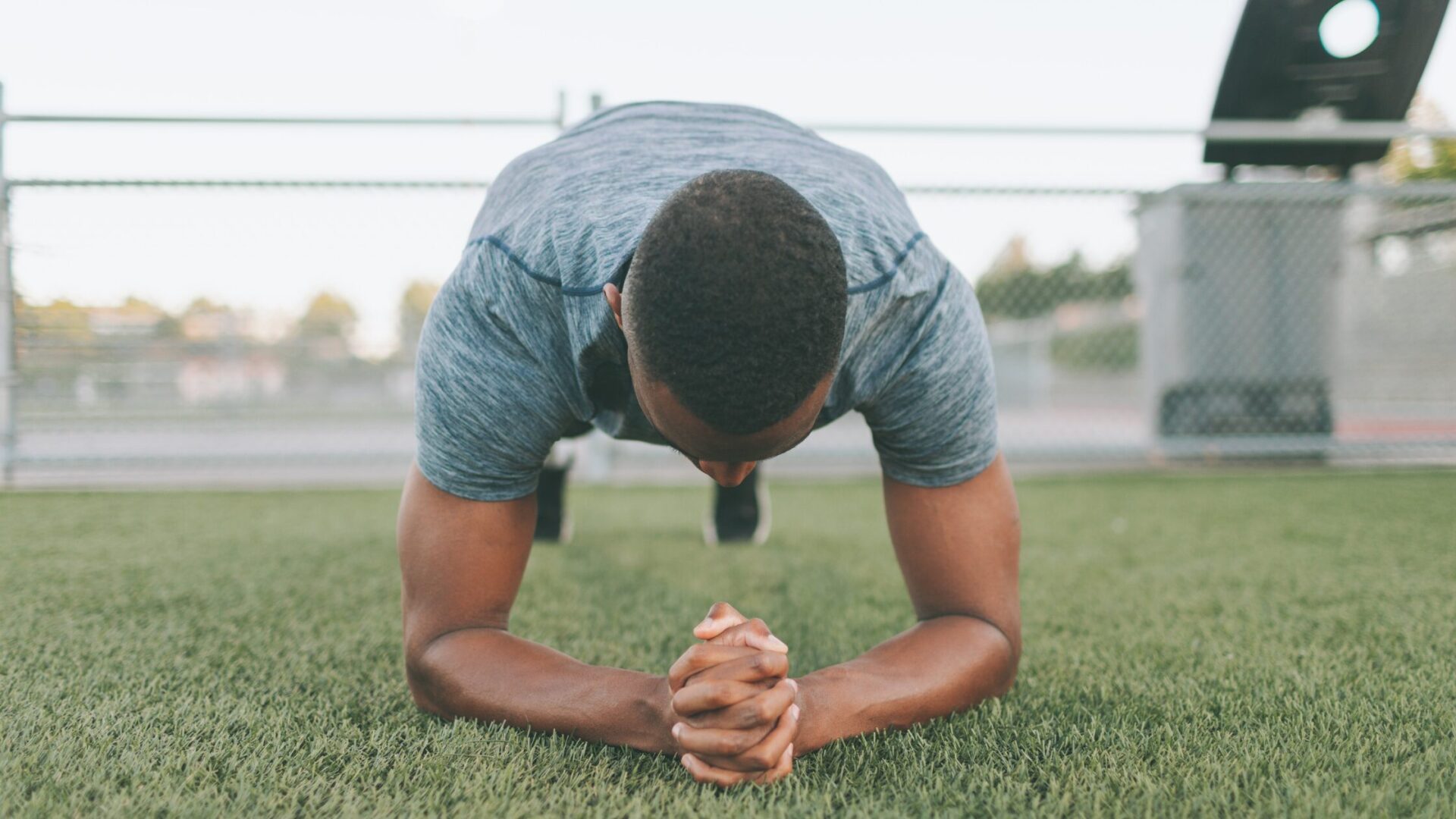How to Improve Mental Health? Top 5 Exercises to Improve Your Mental Health In 2024
Introduction
Mental health, a critical component of our overall well-being, influences how we think, feel, and behave in daily life. It also affects our ability to cope with stress, overcome challenges, interact with others, and make choices. In today’s fast-paced world, where stress and anxiety levels are on the rise, prioritizing mental health is more important than ever. Ignoring mental well-being can lead to serious health issues, including depression, anxiety, and decreased immune function, profoundly impacting one’s quality of life. Fortunately, integrating simple exercises into our daily routines can be a powerful tool for enhancing mental health. These exercises, ranging from physical activities to mindfulness and relaxation techniques, can significantly improve mood, reduce stress levels, and boost overall emotional resilience. By dedicating a small portion of our day to these practices, we can make a substantial positive impact on our mental health, paving the way for a healthier, happier life.
Why Exercise Matters for Mental Health
Exercise is not only beneficial for physical health but is also crucial for maintaining and improving mental health. Scientific studies have shown that regular physical activity can have a profoundly positive impact on depression, anxiety, ADHD, and more. Here’s how exercise benefits mental health:
Endorphin Release
● Physical activity promotes the release of endorphins, often referred to as “feel-good” hormones. These brain chemicals act as natural painkillers and mood elevators, reducing the perception of pain and triggering a positive feeling in the body.
● Further reading on endorphin release: Mayo Clinic on Exercise and Stress
Stress Reduction
- Exercise reduces levels of the body’s stress hormones, such as adrenaline and cortisol. It also stimulates the production of endorphins, which are the body’s natural mood lifters and stress relievers.
- More on stress reduction through exercise: Harvard Health Publishing
Improvement in Sleep Patterns
- Regular physical activity can help you fall asleep faster and deepen your sleep. Sleep is crucial in regulating mood, cognitive function, and mental health overall.
- Insight on exercise and sleep: Sleep Foundation on Exercise and Sleep By incorporating regular physical activity into your routine, you can harness these benefits to enhance your mental well-being. Whether it’s a brisk walk, a cycle around the park, yoga, or more intense forms of exercise, the key is consistency and finding an activity you enjoy.
Benefits of Exercise on Specific Mental Health Conditions

Depression
For individuals battling depression, exercise acts as a powerful antidepressant without the side effects associated with medication. Regular physical activity increases the level of neurotransmitters such as serotonin and dopamine, which are crucial in regulating mood. According to a study by the American Journal of Psychiatry, regular exercise can significantly reduce the symptoms of depression, leading to noticeable improvements in mood and cognitive function over time.
Anxiety
Similarly, exercise is an effective natural remedy for anxiety. It provides a distraction, reducing the cycle of negative thoughts that feed anxiety. For many people, a moderate-intensity workout can mirror the effects of anti-anxiety drugs. The American Psychological Association highlights the role of exercise in breaking this cycle of worry, demonstrating how the body’s physical response to consistent exercise can alleviate anxiety symptoms.
Stress
When it comes to stress, physical activity helps lower the body’s stress hormones, like cortisol, over time. Exercise also enhances the production of endorphins, the body’s natural mood elevator, creating a natural high and helping to maintain a calm and clear mind. Engaging in physical activity provides a healthy strategy to cope with and manage stress, promoting a sense of well-being and relaxation.
Top 5 Exercises to Improve Your Mental Health
Exercise plays a crucial role in enhancing mental health by reducing symptoms of depression, anxiety, and stress. Among various activities, certain exercises stand out for their ability to improve physical health and significantly boost mental well-being. Here, we explore the top five particularly effective exercises in enhancing mental health.
1- Mindful Walking

Mindful walking merges the physical exercise of walking with the mental exercise of mindfulness, leading to a powerful method of boosting mental health. This practice involves being fully present during the walk, paying close attention to the sensations in your body, your breath, and your surroundings without judgment.
■ Benefits for Mental Health:
- Stress Reduction: Engaging in mindful walking can help lower stress levels by fostering a state of mindfulness, which has been shown to reduce cortisol levels in the body.
- Enhanced Mood: This practice can improve mood by promoting the release of endorphins, also known as ‘feel-good’ hormones, which are natural mood lifters.
- Improved Cognitive Function: Regular mindful walking can increase blood flow to the brain, enhance cognitive functions, and reduce symptoms of depression and anxiety.
■ Tips for Incorporating Mindful Walking into Your Routine:
- Start Small: Begin with short walks, gradually increasing the duration as you become more comfortable with the practice.
- Focus on Your Senses: Pay close attention to the sights, sounds, and smells around you. Notice the feel of your feet touching the ground and the air on your skin.
- Use a Reminder: Designate a regular time for your walk or set a reminder to ensure consistency.
- Walk in Nature: If possible, choose a natural setting for your walks, as nature can further enhance the mental health benefits of this exercise.
2- Yoga

Yoga harnesses the power of physical postures, breathing exercises, and meditation to bring about profound improvements in mental health. By integrating the mind, body, and spirit, yoga offers a holistic approach to well-being that can significantly alleviate stress and anxiety and improve overall mood.
■ Stress Reduction:
The practice of yoga significantly reduces stress by encouraging relaxation and lowering the levels of cortisol, the stress hormone, in the body. Various yoga poses, combined with deep breathing techniques, help in calming the mind and promoting a state of peace and tranquility.
■ Anxiety Relief:
Yoga is particularly beneficial for those struggling with anxiety. The mindfulness practiced in yoga helps in detaching from anxious thoughts, focusing on the present moment, and reducing the physiological symptoms of anxiety. Studies have shown that regular yoga practice can lead to a decrease in symptoms of anxiety disorders.
■ Enhanced Mindfulness:
Yoga inherently promotes mindfulness through its focus on breathing and bodily sensations. This practice of being present and fully engaged at the moment can improve cognitive function, enhance emotional resilience, and lead to a more mindful, serene approach to daily life.
3- Strength Training

Strength training, or resistance training, encompasses exercises that build muscle and increase endurance through the application of resistance against muscle contraction. This form of exercise can be particularly effective in managing and alleviating symptoms of both depression and anxiety. Regular strength training has been shown to reduce symptoms of depression by improving self-esteem and increasing endorphins, much like aerobic exercises. For individuals experiencing anxiety, the focus and concentration required for strength training can serve as a form of meditation, allowing for a break from the cycle of anxious thoughts.
■ Benefits for Mental Health:
- Depression Relief: Engaging in regular strength training can elevate mood and reduce symptoms of depression by promoting the release of endorphins, enhancing self-confidence, and providing a sense of accomplishment.
- Anxiety Reduction: The meditative aspect of focusing on exercise and proper technique can help distract from anxiety triggers and reduce the frequency and intensity of anxiety episodes.
- Increased Neuroplasticity: There’s evidence to suggest that regular physical activity, including strength training, can help the brain adapt and change, which is beneficial for mental health.
■ Beginner-Friendly Exercises:
- Bodyweight Squats: Stand with feet a little more than shoulder-width apart, extend your hands out for balance, and sit back and down as if sitting in an imaginary chair. Squat down as low as possible, keeping your head and chest up, then return to the standing position.
- Push-ups: Begin in a plank position with your hands slightly wider than shoulder-width apart. Lower your body until your chest nearly touches the floor, then push yourself back up.
- Planks: Lie face down with forearms on the floor and legs extended. Rise on your toes and rest on your forearms, keeping your body in a straight line from head to heels. Hold this position.
- Dumbbell Rows: Hold a dumbbell in each hand, bend your knees slightly, and bend over at the waist. Keep your back straight and lift the dumbbells towards your chest, then lower them back down.
4- Tai Chi

Tai Chi, an ancient Chinese martial art known for its gentle movements and deep breathing techniques, offers significant benefits for mental health, particularly in stress reduction and mood improvement. This practice, often described as “meditation in motion,” encourages a calm and peaceful mind, creating a state of mental tranquility that combats stress effectively.
- Stress Reduction:
The slow, deliberate movements of Tai Chi, combined with deep breathing, help lower stress levels. By focusing the mind solely on the movements, it provides a mental break from stressors, reducing the body’s stress responses and promoting a sense of well-being.
- Mood Improvement:
Regular Tai Chi practice has been associated with an increase in endorphins, which are natural mood boosters. By improving the flow of energy throughout the body, Tai Chi can leave individuals feeling more energized, happier, and more balanced.
- Enhanced Mental Focus:
Tai Chi’s emphasis on mindfulness and breathing can improve concentration and mental clarity. Practitioners often report enhanced memory and a sharper focus, attributing it to the meditative nature of its movements.
- Increased Self-Efficacy:
Learning and mastering the movements of Tai Chi can also provide a significant boost to self-esteem and self-efficacy. The progress made in practice is a tangible reminder of the practitioner’s ability to learn and grow, which is beneficial for overall mental health.
5- Aerobic Exercises

Aerobic exercises, such as running, swimming, or cycling, are highly effective in improving mental health, with a particularly strong impact on reducing symptoms of anxiety and depression. These activities increase heart rate, which in turn pumps more oxygen to the brain and facilitates the release of various hormones that promote the growth of brain cells. This hormonal activity includes the release of endorphins, often known as the “feel-good” hormones, which naturally reduce pain and stress levels.
■ Benefits for Mental Health:
- Depression Alleviation: Aerobic exercises can significantly lessen the severity of depression symptoms. The endorphins released during such activities act as natural mood lifters, decreasing feelings of sadness and hopelessness over time.
- Anxiety Reduction: Engaging in aerobic exercises can also help lower anxiety levels. The focus on rhythmic physical activity provides a mental break from persistent worries, lowering overall tension and stress in the body.
- Enhanced Mood Stability: Regular participation in aerobic exercise has been linked to improvements in mood and emotional well-being. It can reduce the likelihood of experiencing mood swings and can increase feelings of relaxation and calm.
- Increased Self-esteem: Achievements in aerobic fitness, such as running a longer distance or swimming faster, can bolster self-confidence and improve one’s outlook on life.
■ Aerobic exercises offer a dual benefit for mental health by directly impacting biochemical processes in the brain while also providing a constructive outlet for managing stress and enhancing overall well-being.
■ Incorporating Exercises into Your Daily Routine
Making exercise a consistent part of your life doesn’t have to be daunting. With a few strategic approaches, you can effortlessly blend physical activity into your day-to-day schedule. Here are some tips to help you get started:
Set Realistic Goals:
Begin with manageable objectives, such as a 15-minute walk daily or a Tai Chi session thrice a week. Setting achievable targets makes it less overwhelming and more likely that you’ll stick to your plan.
Find a Workout Buddy:
Partnering with a friend who has similar fitness goals can significantly increase your motivation. Whether it’s a morning jog or a yoga session, doing it together can make exercise more enjoyable and the commitment stronger.
Create a Flexible Routine:
Identify gaps in your schedule where you can fit in physical activities without disrupting your daily routine. It could be during lunch breaks, early morning, or even integrating exercise into your commute.
Mix It Up:
Keep your workouts interesting by varying the types of exercise. Combining aerobic exercises with strength training or Tai Chi can make your routine more enjoyable and reduce the risk of boredom.
Set Up Reminders:
Utilize alarms or fitness apps to remind you of your workout sessions. This can serve as both a prompt and a motivational tool to help keep you on track.
■ By adopting these strategies, integrating exercise into your daily life becomes less of a chore and more of a rewarding habit that enhances both physical and mental health.
Conclusion
In conclusion, the importance of exercise in promoting mental health cannot be overstated. From the meditative flows of Tai Chi, which significantly reduces stress and enhances mood, to the vigorous, endorphin-boosting nature of aerobic exercises that combat depression and anxiety, physical activity offers profound benefits for mental well-being. Strength training and pleasurable outdoor activities further contribute to a holistic approach to mental health, improving self-esteem and offering a tangible outlet for stress and tension. Beginning with small, achievable goals and gradually increasing the intensity and variety of exercise can make a significant difference. It’s about finding what works for you, creating a routine that is both flexible and enjoyable, and recognizing the cumulative benefits that even the smallest amount of regular physical activity can bring to your mental health. The key is to start small, listen to your body, and, most importantly, be consistent. Whether it is a short walk, a Tai Chi session, or a swim, each step is a leap towards enhanced mental well-being.



